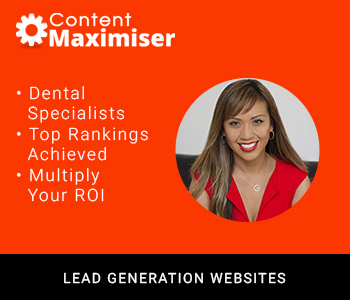The healthcare industry is undergoing a transformative shift, driven by advancements in technology. In 2024, artificial intelligence (AI) stands at the forefront of this revolution, reshaping how healthcare organisations market their services and engage with patients. This blog post explores the profound impact AI is having on healthcare marketing, highlighting key trends, applications, and the future potential of this technology.
The Evolution of Healthcare Marketing
Traditionally, healthcare marketing relied on conventional methods such as print advertisements, television commercials, and direct mail. However, the digital age has brought a significant shift towards online platforms, including websites, social media, and email campaigns. In recent years, the integration of AI has accelerated this transformation, offering new opportunities for precision, personalization, and efficiency.
AI-Driven Personalization
One of the most significant ways AI is revolutionising healthcare marketing is through personalization. Patients are no longer satisfied with generic messages; they expect content tailored to their specific needs and preferences.
Personalised Content Recommendations
AI algorithms analyse patient data, including browsing behaviour, previous interactions, and medical history, to deliver personalised content. For example, a healthcare provider can use AI to recommend articles, blog posts, or educational videos based on a patient’s specific condition or interests. This level of personalization enhances engagement and ensures that patients receive relevant information.
Targeted Advertising
AI-powered advertising platforms enable healthcare marketers to create highly targeted ad campaigns. By analysing demographic data, interests, and online behaviour, AI can identify and reach potential patients who are most likely to be interested in specific services. This results in more effective advertising and a higher return on investment.
Dynamic Email Campaigns
Email marketing remains a powerful tool in healthcare, but AI takes it to the next level. AI can segment email lists based on patient data and behaviour, crafting personalised messages that resonate with each recipient. For instance, AI can send reminders for upcoming appointments, personalised health tips, or tailored offers for relevant services.
Enhanced Patient Engagement
AI is transforming how healthcare organisations interact with patients, creating opportunities for more meaningful and efficient engagement.
Chatbots and Virtual Assistants
AI-powered chatbots and virtual assistants are becoming increasingly common in healthcare marketing. These tools provide immediate responses to patient inquiries, schedule appointments, and offer general health information. For instance, a chatbot on a hospital’s website can help visitors find information about services, answer frequently asked questions, and even assist with insurance queries.
Predictive Analytics
Predictive analytics, powered by AI, helps healthcare marketers understand patient behaviour and preferences. By analysing historical data and identifying patterns, AI can predict future patient needs and trends. This enables healthcare organisations to proactively address patient concerns and tailor their marketing strategies accordingly.
Social Media Insights
AI tools analyse social media conversations and sentiment to gain insights into patient opinions and preferences. This information helps healthcare marketers understand how their brand is perceived and adjust their strategies to address any issues or capitalise on positive feedback.
Improved Patient Acquisition
AI is also revolutionising patient acquisition strategies, making it easier for healthcare organisations to attract new patients.
Search Engine Optimization (SEO)
AI-driven SEO tools analyse search patterns and keywords to optimise healthcare websites for better visibility. These tools can identify trending keywords, analyse competitors, and provide recommendations for content improvements. By leveraging AI in SEO, healthcare organisations can enhance their online presence and attract more organic traffic.
Lead Generation
AI-powered lead generation tools help healthcare marketers identify and nurture potential patients. These tools analyse data from various sources, such as website interactions and social media activity, to identify individuals who are likely to be interested in healthcare services. Marketers can then target these leads with personalised content and offers.
Conversion Optimization
AI algorithms analyse user behaviour on healthcare websites to identify barriers to conversion. For example, if users frequently abandon appointment scheduling forms, AI can suggest changes to improve the process and increase completion rates. This data-driven approach helps healthcare organisations optimise their online presence and improve patient acquisition efforts.
Ethical Considerations and Data Privacy
While AI offers numerous benefits, it also raises ethical considerations and concerns about data privacy.
Ensuring Data Security
Healthcare organisations must prioritise data security when implementing AI solutions. AI systems handle sensitive patient information, and ensuring that this data is protected from breaches is crucial. Compliance with regulations such as the Health Insurance Portability and Accountability Act (HIPAA) is essential to maintain patient trust and safeguard data.
Avoiding Bias in AI
AI algorithms are only as unbiased as the data they are trained on. Healthcare marketers must be aware of potential biases in AI systems and take steps to ensure that their marketing strategies are inclusive and equitable. Regular audits and transparency in AI processes can help mitigate biases and ensure fair treatment for all patients.
Maintaining Human Oversight
Despite the advancements in AI, human oversight remains important. AI should complement, not replace, human judgement in healthcare marketing. Healthcare organisations should ensure that marketing strategies are guided by ethical principles and that AI tools are used to enhance, rather than overshadow, human interactions.
Future Trends in AI and Healthcare Marketing
As AI technology continues to evolve, several trends are likely to shape the future of healthcare marketing.
Integration of Augmented Reality (AR)
Augmented reality (AR) combined with AI has the potential to transform patient engagement. For example, AR can be used to create interactive educational experiences for patients, such as virtual tours of healthcare facilities or simulations of medical procedures. AI can enhance these experiences by providing personalised content and real-time information.
Advanced Predictive Analytics
Future advancements in predictive analytics will enable even more accurate forecasting of patient needs and trends. AI will be able to analyse larger datasets and provide deeper insights, helping healthcare marketers make more informed decisions and deliver highly targeted campaigns.
Enhanced Patient Experience
AI will continue to enhance the patient experience by providing seamless and personalised interactions. From virtual health consultations to AI-driven health management tools, the future of healthcare marketing will focus on creating a more integrated and patient-centred experience.
Conclusion
In 2024, AI is revolutionising healthcare marketing by enabling personalisation, enhancing patient engagement, and improving patient acquisition strategies. As healthcare organisations embrace these advancements, they must also address ethical considerations and prioritise data privacy. The future of healthcare marketing will be shaped by continued innovation in AI, offering new opportunities to connect with patients and deliver exceptional care.
By leveraging AI technology, healthcare marketers can create more effective, personalised, and efficient marketing strategies, ultimately improving patient outcomes and driving success in an increasingly competitive landscape. The integration of AI in healthcare marketing is not just a trend; it’s a transformative shift that will continue to shape the industry for years to come.



